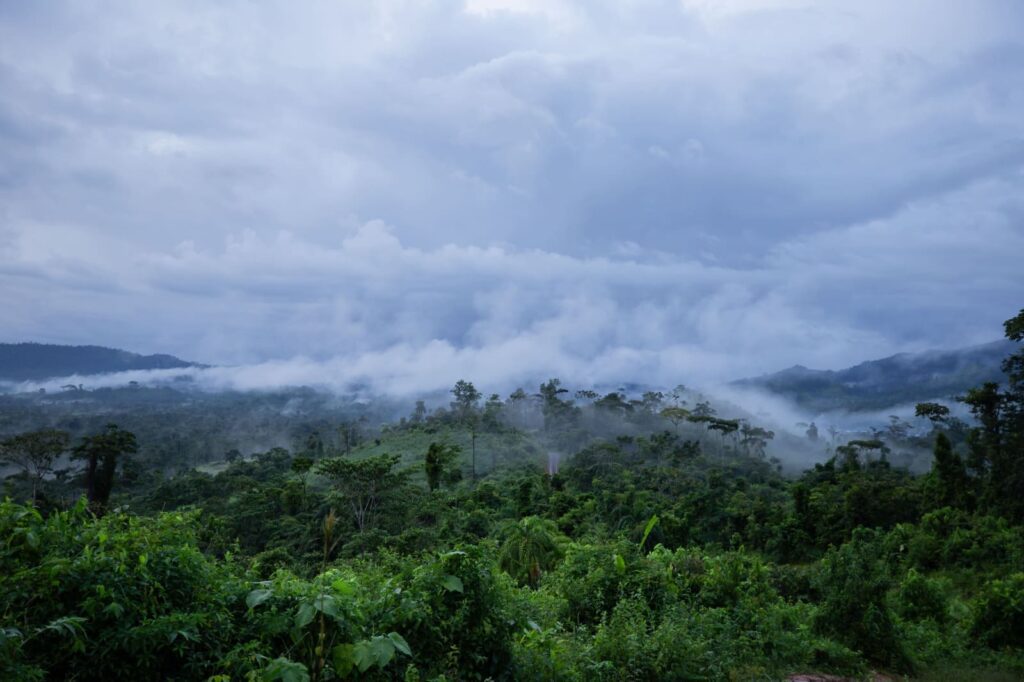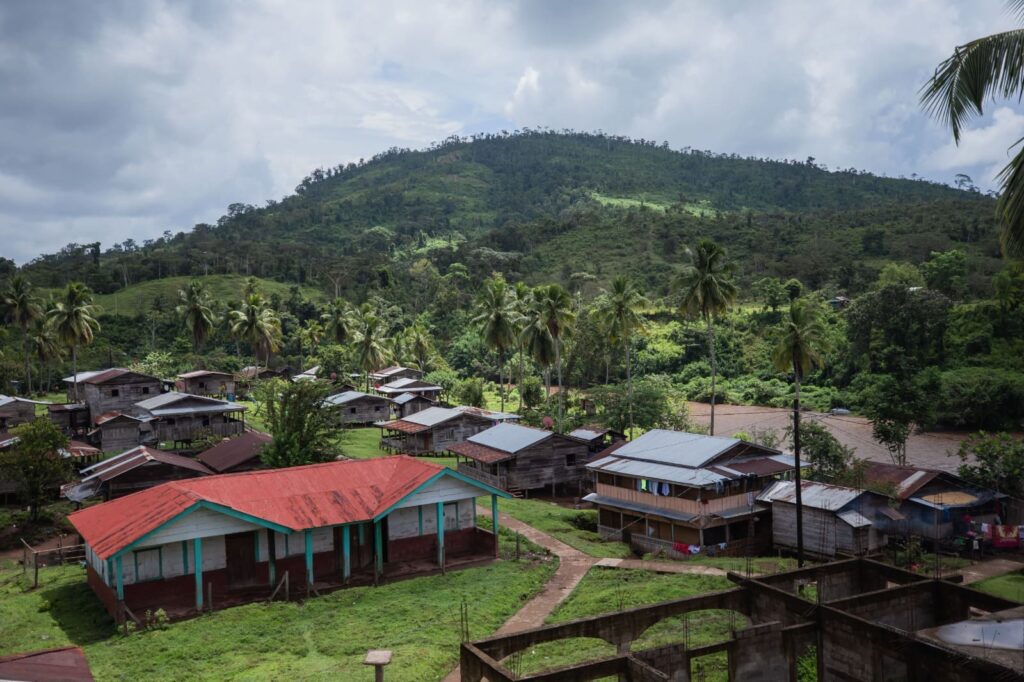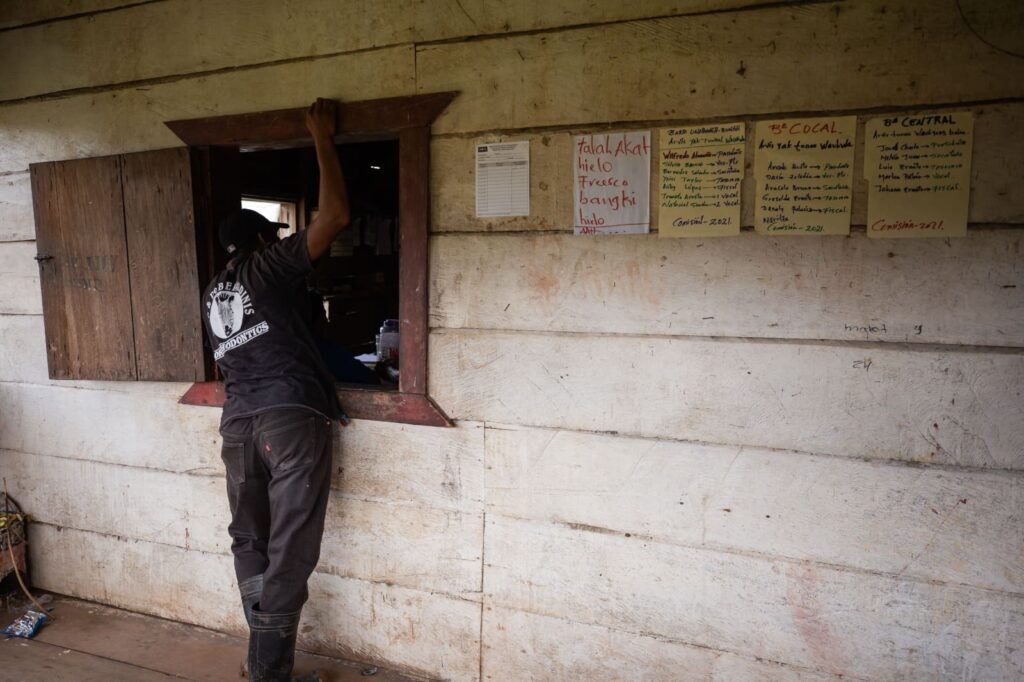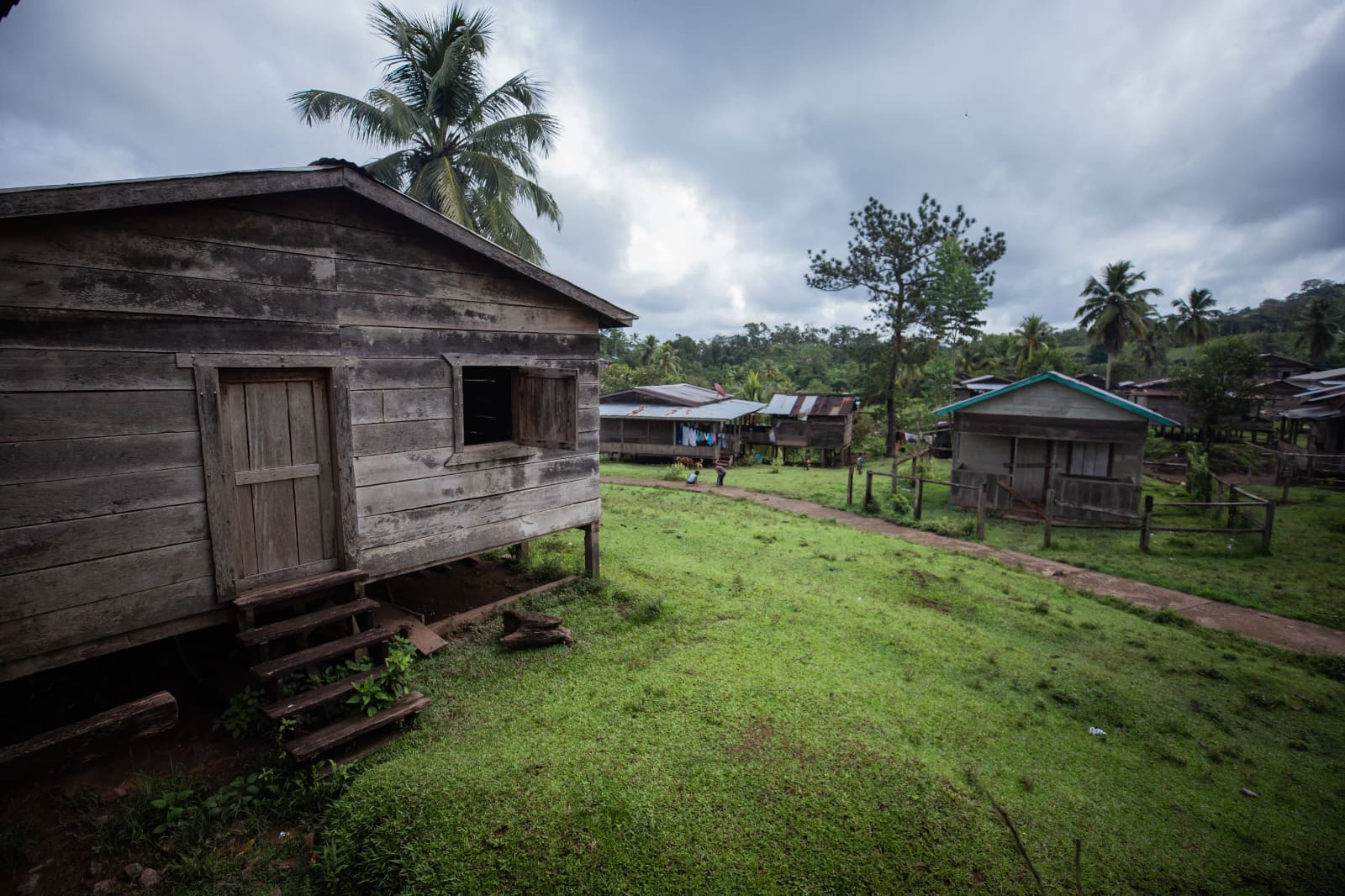The Free, Prior and Informed Consent and Consultation Plan implemented by the Ortega-Murillo dictatorship in the indigenous communities of the Caribbean Coast has no validity and is a “simulation of consultations” so that the Bio-CLIMA project can be approved, denounced Amaru Ruiz, director of Fundación del Río and environmental defender.
Although the millionaire Bio-CLIMA project had been declared unviable by the Independent Reparation Mechanism (MIR), due to the lack of prior, free and informed consultations in the indigenous and Afro-descendant communities, it could be up and running again due to forced consultations carried out by the dictatorship since last August.
The project has been presented by the dictatorship as an opportunity to combat climate change and deforestation, but it is an economic project that benefits agricultural and livestock companies settled in the area, denounced the communities and environmental defenders.
Fundación del Río together with the indigenous peoples exposed through a presentation the different arbitrariness committed by the Ortega-Murillo regime in the consultation plan.
The keys to understanding the illegalities in the process and the risks that the Bio-CLIMA project represents for the indigenous and Afro-descendant populations range from illegal consultations, blackmail and the criminalization of forest rangers.
A project full of arbitrariness

Bio-CLIMA is a project proposed by the Ortega-Murillo dictatorship to the United Nations Green Climate Fund (GCF), whose supposed goal is to “combat climate change through agro ecological production” in the Bosawás Reserve territory, according to official documents published by the agencies leading the initiative.
The budget for Bio-CLIMA amounts to more than US$116 million, which would be financed by FVC, the Global Environment Facility (GEF) and the Central American Bank for Economic Integration (CABEI).
The problem is that the project was approved in November 2020 without prior, free and informed consultation with the indigenous and Afro-descendant peoples living in the territory where Bio-CLIMA is planned to be executed, in violation of Law 445, Law on the Communal Property Regime of Indigenous Peoples and Ethnic Communities.
The project was paused in June 2021 after the Independent Redress Mechanism, an internal oversight body of FVC, received an official complaint from community leaders denouncing the lack of consultation and consent from the population living in the area.
The complaint also warned of the communities’ fear of being displaced from their original territories, given that Bio-Clima intends to use these lands for the “sustainable production” of crops and cattle, and proposed a process of “cohabitation” with settlers who would also be project beneficiaries.
Following this complaint, MIR declared the project unviable until there was an investigation into the situation and the rights of the indigenous populations were respected. Thus, it prevented the disbursement of the money that would allow Bio-CLIMA to be executed.
Although this was good news for the indigenous and Afro-descendant communities, the Ortega-Murillo regime and CABEI announced last August 28 the implementation of a Plan for Consultation and Free, Prior and Informed Consent to 23 indigenous and Afro-descendant territories linked to Bio-CLIMA.
This with the objective of “pretending a false compliance with the procedures” for Bio-CLIMA to be approved again, indicated the president of Fundación del Río.
The consultation process began on August 15 and will end on September 30. However, it has been full of arbitrariness and violations of the rights of indigenous and Afro-descendant peoples, said Ruiz. “This has been a process of simulation of consultations, not a real process because it has not been prior, nor free, nor informed,” he said.
Violatory consultation process

The consultation and consent plan carried out by the dictatorship and CABEI since August 15 has no validity because it does not respect the necessary conditions to be considered free, prior and informed, said Ruiz.
Among the first reasons is that it does not have the minimum necessary participation of the indigenous and Afro-descendant populations. According to CABEI, it is planned to consult 6,476 people from 23 indigenous territories that inhabit the project area.
But these 23 territories are home to 140,716 indigenous and Afro-descendant people, according to the last National Census conducted in 2005, so the consultations only represent 4.6% of the total population.
“For example, in the case of the Mayagna Sauni As territory there are 24 communities, but they only held a session in one community and that does not correspond to the total number of communities living in the territory,” said the president of Fundación del Río.
In addition, residents of these communities have denounced that many of the consultations have been carried out outside the indigenous territories. The purpose of this is to reach the number of consultations planned by the regime and CABEI, according to the researcher.
On the other hand, this consultation and consent plan is not of a prior nature, given that the project was approved in 2020 without the participation of the indigenous communities. Bio-CLIMA already has a work plan designed, a zone of intervention and an assigned budget, so what was established by the indigenous communities in the consultations will have little or no impact on it.
“There is very little that is going to be able to be modified at this point. The consultation has no validity because no official document already approved can be modified,” Ruiz explained.
The consultations are not of a free nature. From the beginning, a militarization process was carried out, which according to the dictatorship is to guarantee the security of the people in the community, but which these same people perceive as a threat and coercion.
The consultation plan is also directed by the parallel governments imposed by the Ortega-Murillo regime, which prevents any dissenting position by other community authorities.
And community authorities that are not allied with the regime were forced to sign their consent under threat of not receiving the funds from the Ministry of Finance that the territorial governments are entitled to in order to direct the communities.
The consultations have also not been transparently reported. So far the project has been presented to the communities in a 22-page booklet that only partially summarizes the benefits, but hardly anything about the consequences.
Nor have the communities been given any more comprehensive document that fully shows what is planned. “This booklet summarizes the project, but the communities have not been given any document in their indigenous language or in Spanish. The booklet only contains a series of very basic points about the project,” said Ruiz.
In addition, the dictatorship and CABEI assure in the booklet that Bio-CLIMA will not have severe or significant impacts on the territories. However, MIR qualified it as a Category A project, meaning that “the project has significant adverse risks that may be irreversible,” according to its resolution published in 2021.
The risks are due to the fact that the project is located in indigenous communities and due to the use of the land and forests.
Criminalization of indigenous people who denounce invasion by settlers

The Bio-CLIMA project is taking place in the midst of a context of criminalization and arbitrary detentions of indigenous people who have denounced the invasion of settlers in their territories. On August 13, four forest rangers from the Mayangna Sauni As community were violently detained by members of the Directorate of Special Police Operations (DOEP) and the Ecological Battalion of the Nicaraguan Army.
The detained rangers are Rodrigo Bruno Arcángel, Victor Castro, Stony Bruno Smith, and their minor son whose identity was not made public, who are recognized in their community for publicly denouncing groups of settlers.
These men were identified as members of “criminal groups” involved in the attacks on the Mayangna communities, according to police reports. At least 12 other rangers are currently under investigation.
However, the police version is contradictory. “The institution trained the rangers to protect the territories and provided them with supplies,” explained Ruiz.
“The police have trained those rangers. There is a contradiction in the regime’s narrative that wants to criminalize the work of the forest rangers, because they have denounced the massacres in their territories and the invasion processes,” he continued.
These arrests are added to the imprisonment of four other indigenous people deprived of liberty since 2021, who were accused and sentenced to life imprisonment for allegedly committing the Kiwakumbaih massacre that occurred on August 24, 2021, in which 11 Miskitos and Mayangnas were killed and two women were sexually abused. Although the survivors assured that the attackers were settlers.
The last attack occurred last September 12 against four indigenous people from the Mayangna Sauni Bu community. All were attacked with firearms and according to the Platform of Indigenous and Afro-descendant Peoples it is suspected that the attackers were settlers. Clen Dixon Fernández, 36 years old, died in this attack.





